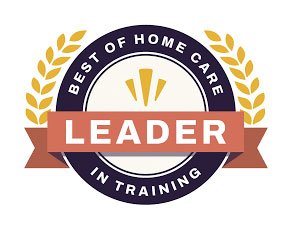One of the stages of grief is acceptance. People tend to think of acceptance as the last stage of grief. But in truth, the stages don’t always happen in a set order. It is common to experience multiple stages or even all stages at the same time, or to cycle through them.
Every stage of grief is important in processing emotions over a loss. Acceptance is a powerful stage, because it can set you and your loved ones free to live more fully. Let’s go over the role of acceptance in hospice.
What Acceptance Means During Grief

First, let’s talk about what acceptance is and isn’t. Acceptance is not saying it is fine that you or your loved one is dying. You do not have to be okay with that. You can continue to feel your other feelings about it, like anger or sadness.
Acceptance in the context of grief simply refers to acknowledging fully that the situation is real. As part of anticipatory grief, it means accepting the reality that the death is inevitable. Once your loved one passes, it means accepting the reality that they are truly gone.
How Acceptance Helps Patients with a Terminal Diagnosis
Some patients may resist acceptance because it feels to them like giving up. But it is not giving up. It is choosing to stop fighting a losing campaign against a disease that cannot be beaten. The patient can then free up their time, energy and attention to make the most of their remaining time.
In fact, for some patients, the moment of acceptance is also when they agree to enter hospice, and get the care they need. People who receive hospice care actually live longer on average than those who do not.
Hospice also gives the patient the means to increase their autonomy, reduce pain and discomfort, and spend more time at home with their loved ones.
How Acceptance Helps Grieving Family and Friends
Accepting the reality of a terminal diagnosis can free up a patient’s time, and give them the opportunity to seek care and support. But it also can help family and friends.
When you acknowledge that your loved one’s time is limited, you are more likely to help them enter hospice care and make other transitions as needed.
There may be certain things you want to address or discuss with your loved one while they are still here, or experiences you still want to share with them.
Acceptance is what helps you know that it is time for you to focus on those things. Work through unresolved issues, say things you would regret not sharing, and spend time with your loved one doing activities they enjoy, talking, or just sitting quietly together.
Contrary to what a lot of people think, acceptance isn’t always how you conclude grief. Sometimes it’s just the beginning. But once you begin to process what is happening, you can seek the help you need to keep working through it. Hospice provides grief counseling services to patients’ loved ones, so make sure to avail yourself of those services if you need them.
Increase Comfort and Quality of Life with Hospice Care in GA
It is hard to accept that it is time for hospice. But once that decision is made, it can help patients and their families get the most out of the time that is left.
We have locations in Atlanta and Alpharetta, and can care for your loved one and support your family throughout the region. To find out how we can help, please contact our care team at (470) 395-6567.






